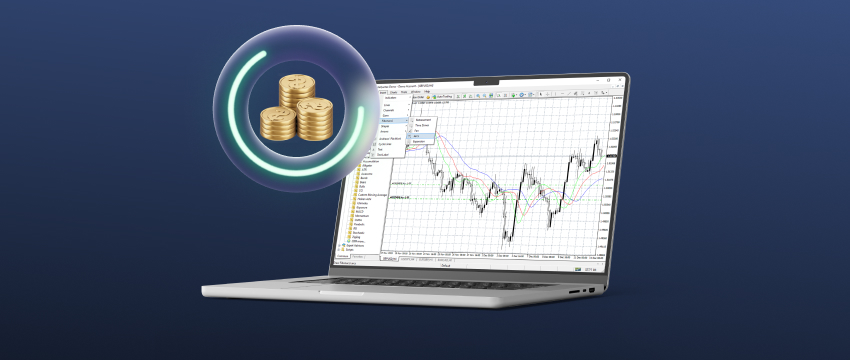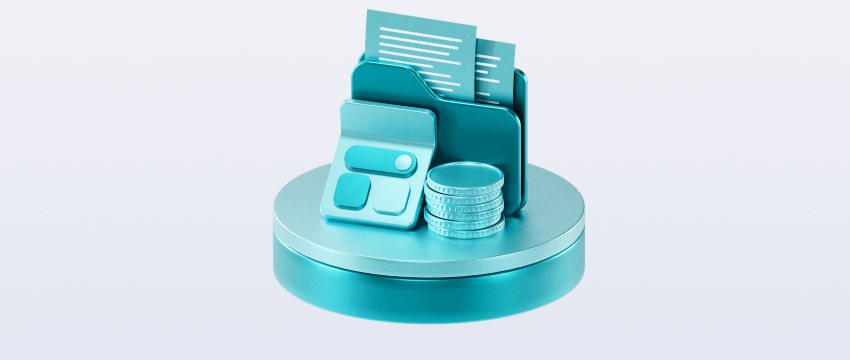Many forex traders get to a point in their journey when they ask themselves, “Is it really possible?” They suffer a particularly tough loss, or fail a chain of predictions, or perhaps they just have a tough week outside of trading.
This can feel extremely discouraging, especially in those middle stages where you can’t call yourself a newbie anymore, but you still haven’t made your big break.
But obviously, many people make their living solely from forex trading. Their (not-so) secret is that it didn’t happen overnight.
You may see trading influencers living it up and think that they are some sort of trading genius. But the truth is, they have most likely gone through the same ups and downs you gave, and they may have even at one point asked the same question you’re asking.
Today, we’ll discuss how forex traders can go from someone who trades from time to time or as a way to earn side income to someone who trades forex for a living.
Investment capital in forex
One thing many forex traders avoid talking about is the capital they invest. However, this is perhaps the biggest factor in determining if you can live off forex. Simply put, the more capital you are able to put in, the less you need to earn, percentage-wise to become a full-time forex trader.
Let’s say you want to earn $5,000 per month. If you invest $5,000, you’ll need to double that every month. In the forex market, that’s a tall order, if not completely impossible. Now let’s say you put in $500,000. You only need to increase your capital by 1% each month, which is much more feasible.
Of course, very few of us have $500,000 just lying around and are ready to risk that amount of money. After all, the first advice when trading is not to invest more than you can afford to lose, and that advice holds true.
Here is where you need to take things slow and set realistic trading goals. Perhaps you’ll have to spend more time with trading as your side hustle to build your capital and make sure that once you do devote yourself completely, you have enough experience to navigate the markets correctly.

Forex consistency
The next most important thing for people who solely want to trade forex for a living is being consistent. This means being able to create and stick to a sustainable trading routine, and it’s a skill you should have before switching to full-time.
So, while you are still trading forex part-time, make sure to devote time to developing a well-thought-out routine. This means one that gives you enough time to explore market opportunities, but doesn’t take a toll on your day-to-day.
The biggest risk when you decide to try and make your living with forex is burnout. Keep in mind that it’s fairly likely that you’ll need to invest more time than when you were a part-time trader, and when you make the switch, do so gradually, not to feel overwhelmed.
The next important aspect of consistency for everyday forex traders is consistent performance. If you intend to live off forex, earning $3000 one month, then losing $2000 the next can sustain you, but it is also likely to lead to stress, irregular trading patterns, and emotional trading.
Of course, you’ll never have the exact same performance two months in a row. You’ll have some bad months and some amazing months. The key is to strive for a steady experience, as this is much more sustainable both financially and emotionally.
A sound trading strategy
Trading without a forex strategy: why it works only for a while
When you trade forex as a means of trying to secure a sound income, you may be able to get by without a specific strategy. You just hop on some trades that look good, get some results, and you may be satisfied with that.
This approach is completely fine for people who aren’t that interested in trading, and only want to explore the financial aspect a bit.
Why casual forex trading doesn’t scale
However, once you start trading more extensively, this is unlikely to get you the same results. Opportunities pop up more seldomly, and smart, strategic trading becomes much more important. Capitalising on small, everyday market events rather than outliers is crucial if you’re trading every day.
The need for a trading strategy
This requires a trading strategy. In other words, you need to know your entry and exit conditions, P/L goals, preferred assets, trading orientation, and the specific tactic you are going to use. All of this requires a bit of experience and a bit of experimentation, as it’s highly individual from trader to trader.
Gaining experience: demo or live forex trading
To gain experience, beginners can use a demo account. It lets you trade with virtual funds. There is no risk to your capital. If you already have some experience, you have another option.
You can test ideas directly in the real markets. This helps you shape a proper strategy. Just be careful not to invest too much.
Using a trading journal to improve
Finally, a trading journal may be of significant experience here. Logging why you chose each trade, how it performed, and how it made you feel is an easy way to make your strategy more efficient.
It’s a way to measure your actual performance without any bias, while still getting the full picture, including your own mindset, unlike, for instance, if you were to only look at your trading history.
Pengurusan Risiko
Another component of doing forex full-time is to manage risk properly. This is absolutely essential, especially when forex traders reach that level when they want to live off forex.
In such situations, the risk is much more pronounced. If you take on too much and it goes south, it may mean you’ll have to dip into some savings to keep trading. Conversely, if you take on too little, it may be difficult to sustain earnings.
Here, strong fundamentals are necessary. Setting take profits and stop losses, properly calculating your position sizes based on your capital, being careful with leverage, and being consistent with risk per trade are all crucial parts of your routine.
For full-timers, it’s important to go further. They must understand that risk is about overall exposure. It’s not only about single trades.
Spreading capital across different asset classes helps reduce danger. These assets should not move together. This approach can help you avoid flash crashes. It also makes your portfolio far more resilient.

Perdagangan mengikut perasaan
Finally, there’s something we mentioned already, and that’s emotional trading. All trading involves some emotions. They are impossible to shut down, and trying to do so will only make them well up.
Greed, fear and staying consistent
Almost everyone knows about greed and fear. The way to handle them is simple. Be consistent. Put in the work. Trust yourself. Stick to your plan. This path helps traders stay disciplined.
The trap of revenge trading
However, one major issue appears for many full-time forex traders. This issue is revenge trading, or chasing losses.
They get frustrated after a loss. This loss now affects their main income. As a result, they trade recklessly to avenge it. Often, that leads to a bigger hole.
Accepting losses as part of the process
Circling back to what we said at the beginning, losses happen. Learning how to deal with them is an instrumental part of sustaining a full-time forex routine.
Making decisions with a cool head
Don’t trade right after a big loss, and take the time to decide what’s the best course of action. Perhaps you will simply take the loss. You may then continue normally.
You accept that your results that month will be worse. Or perhaps you’ll add a bit more capital to make it easier to get better results.
The important thing is to choose with a cool head. You must think carefully. Always consider the trading implications. Don’t act just because you feel like it.
Penafian: This material is for general informational and educational purposes only and should not be considered investment advice or an investment recommendation. T4Trade is not responsible for any data provided by third parties referenced or hyperlinked in this communication.




